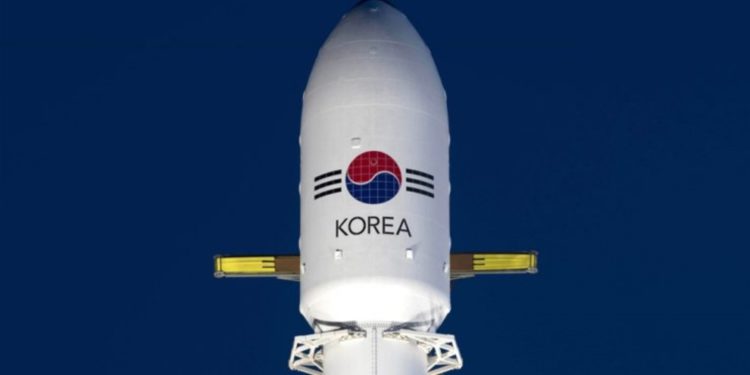According to reports, South Korea is all set to develop and launch its first solid-fuel space rocket, which is expected to complete by 2024. The space rocket will be carrying a mini satellite of 500 Kg. This new engine will help improve the capabilities in military surveillance as it can put mini-satellites into the lower earth orbit.
After the US lifted restrictions on South Korea’s use of space rocket solid fuel, SK could finally begin its space venture from May this year. In July, the country had a successful attempt in the combustion test of its solid-propellant space rocket engine. The ministry has a test site in the Western City of Taean, where the test was conducted on July 29.
The space rocket engine and satellite parts will be built from Naro Space Center in Goheung, the only launch site in Korea. At present, the Space Center is occupied with the country’s first homemade space rocket, Nuri, which is scheduled to launch in October. While Nuri happens to be a liquid engine, the new space rocket project will be a solid-fuel rocket to have a faster, uncomplicated, and cost-effective launch.
“Based on the technology we secured through the development of the liquid-propellant Nuri space rocket and the swift development of solid-fuel space rocket technologies, we will be able to take a step closer to becoming one of the world’s top seven countries with strong space capabilities,” the ministry stated.
The announcement was made soon after North Korea fired two ballistic missiles, and hence industry experts acknowledge it as the evident response to North Korea. The DAPA, which works under the defense ministry, recently spoke on the project to set up ultra-small spy satellites to identify asymmetric threats from North Korea’s nuclear weapons and missiles. These satellites are expected to detect and warn the officials of provoking any signs.
Another announcement that created a buzz is the government’s move to transfer state-owned space technologies to private aerospace companies. According to the official sources, the government plans to invest $593 million to push its space projects. Industry experts speculate the grantee to be among Hanwha Aerospace, Korean Air, Perigee Aerospace, and Innospace.
The officials spoke to the media, where it declared, “The government will continue to push for the development of core technologies, establishment of infrastructure and improvement in systems to support the private-led space programs to boost the country’s economy and competitiveness in the science and technology sector.”







